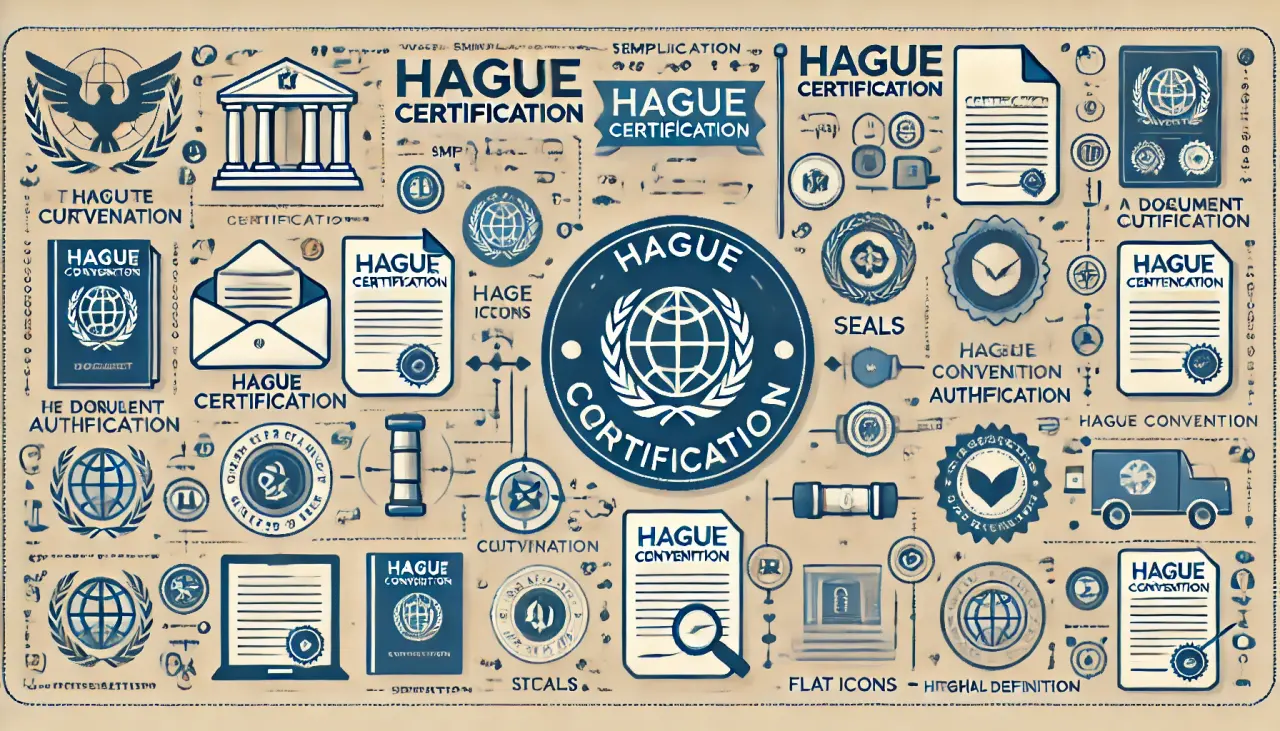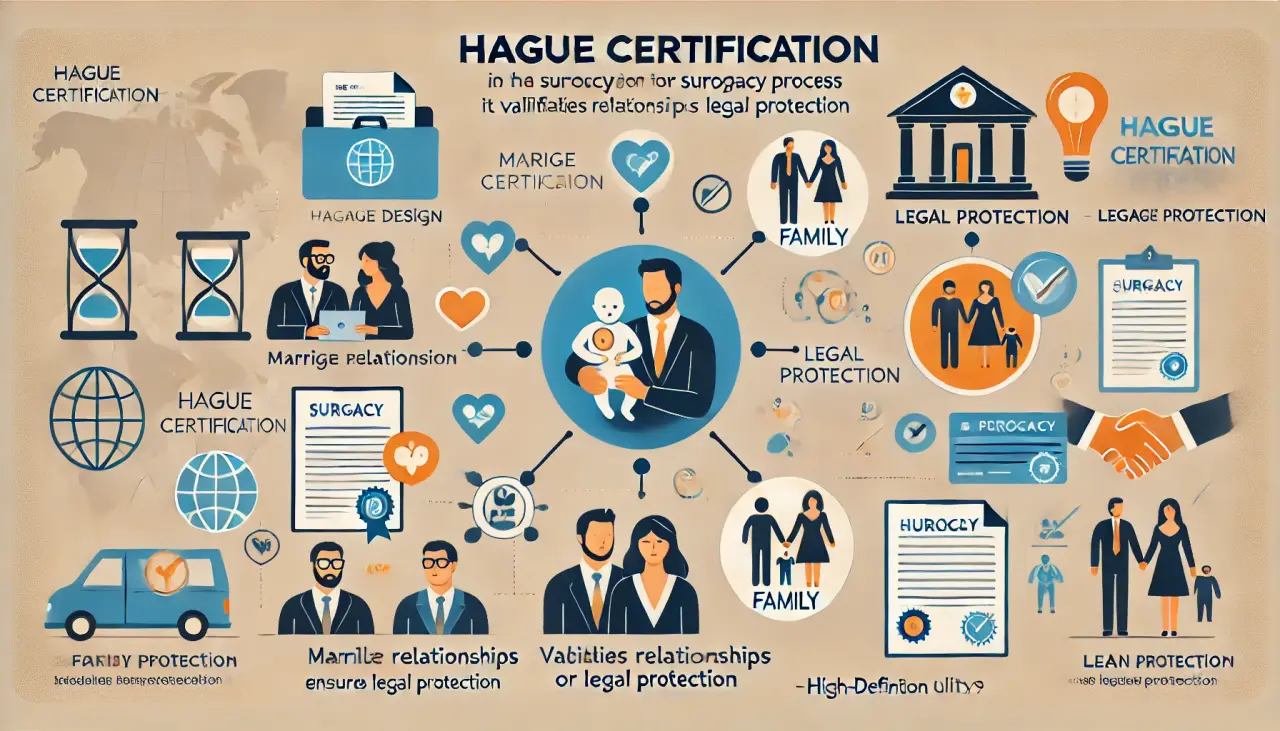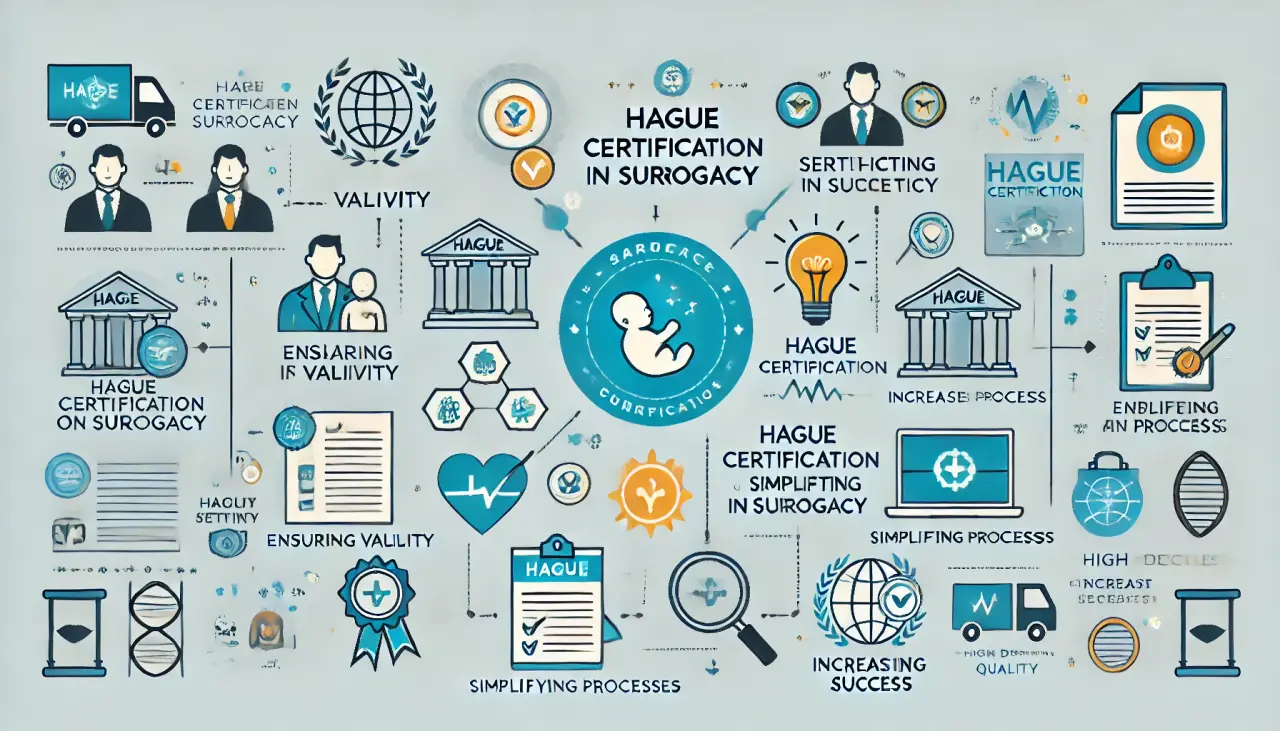
Why Hague Certification is Crucial for Surrogacy in Georgia: Understanding Its Importance
For those considering surrogacy in Georgia, one key element in the entire process is Hague Certification. While the required documentation may not be extensive, this particular certification is crucial. Today, let’s dive into what Hague Certification is, why it’s necessary, and how it impacts the surrogacy process.
1. What is Hague Certification?
Hague Certification refers to the process of certifying public documents under the Hague Convention. Specifically, it is the act of a designated authority confirming the authenticity of signatures and seals on official documents from a country that has signed the Hague Convention.
Before October 5, 1961, if a document was to be used internationally, it required a consular authentication (also known as double authentication). This involved three steps:
- The document was first notarized.
- Then, it was sent to the Ministry of Foreign Affairs for further verification.
- Finally, it was submitted to the relevant consulate.
This process was time-consuming and cumbersome.
To streamline this process, the Hague Convention was established. On January 24, 1965, the Hague Convention Abolishing the Requirement of Legalization for Foreign Public Documents came into effect. Since then, documents can be authenticated by the competent authorities within the country of origin, without requiring consular involvement.
This simplified process is what we now know as Hague Certification.

2. Why is Hague Certification Necessary for Surrogacy in Georgia?
2.1 Ensures Legality and Validity of Documents
Hague Certification provides an internationally recognized means of authentication. It ensures that notarized documents are considered valid and legally acceptable across different countries and regions.
In the context of surrogacy in Georgia, Hague Certification guarantees that the notarized documents submitted by intended parents are recognized and accepted in Georgia. This helps avoid complications, such as legal challenges or surrogacy failures, due to invalid or unrecognized documents.
2.2 Simplifies the Certification Process
Without Hague Certification, intended parents would need to have their documents notarized and authenticated in each country individually. This process is both time-consuming and complex. However, with Hague Certification, documents are recognized across multiple countries, significantly simplifying the certification process and saving time and effort for everyone involved.
2.3 Increases the Success Rate of Surrogacy
Surrogacy agencies in Georgia typically require intended parents to provide Hague-certified notarized documents. This is to ensure the legal validity and security of the surrogacy process. If intended parents cannot provide such documents, there is a high risk that the surrogacy agency may reject the case, ultimately lowering the chances of a successful surrogacy outcome.

3. The Role of Hague Certification in the Surrogacy Process
Hague Certification plays a crucial role in validating the marital relationship or partnership of the intended parents. Once the certification process is completed, the authenticated documents are submitted to the relevant surrogacy clinics.
These documents become a vital prerequisite for initiating a legal surrogacy process. Only when Hague Certification is successfully completed can the surrogacy procedure proceed within the legal framework. This ensures the protection of all parties’ rights and minimizes potential legal risks or disputes.

4. Key Takeaways:
- Hague Certification ensures that public documents are internationally recognized and valid for use in surrogacy in Georgia.
- It simplifies the often complex and time-consuming process of document verification.
- Without Hague Certification, surrogacy agencies in Georgia may not accept the intended parents’ documents, lowering the chances of a successful surrogacy.
- The Hague Convention helps protect the rights of intended parents and surrogates by ensuring the legality of documents involved in surrogacy agreements.